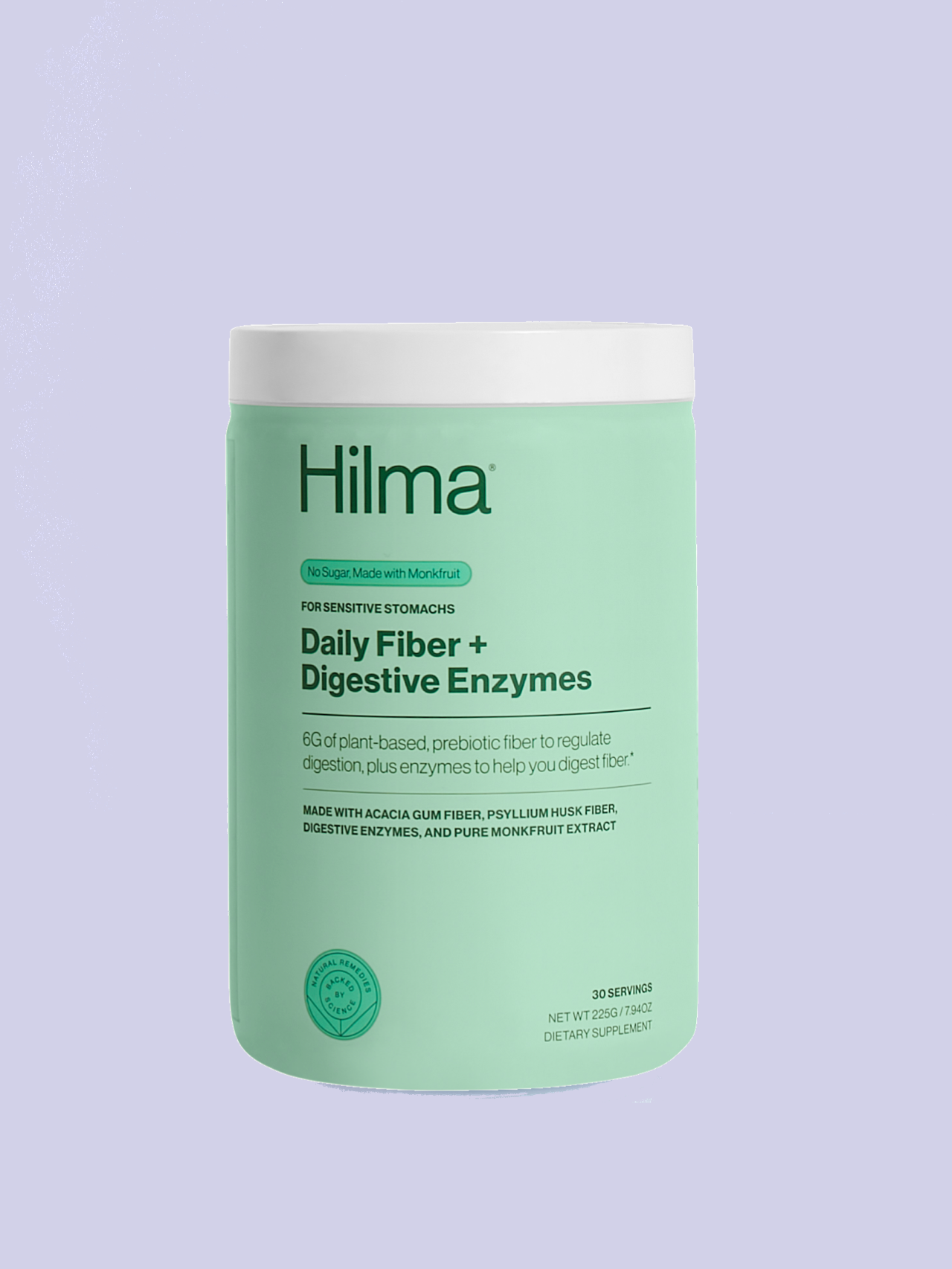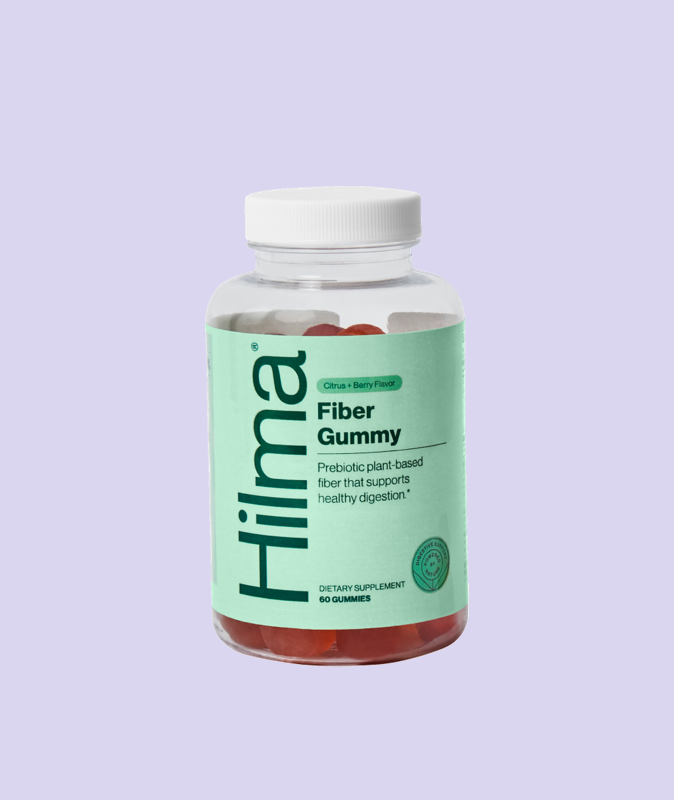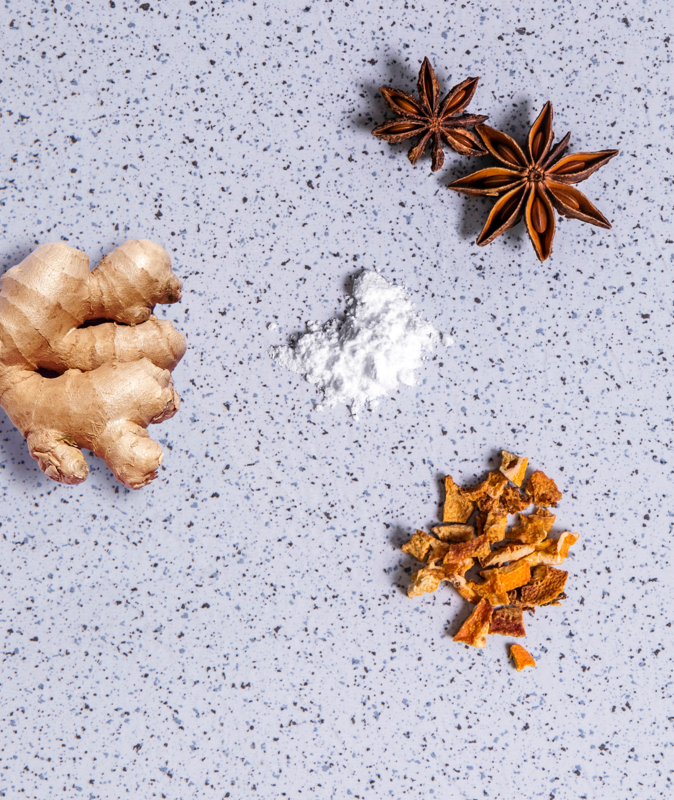
Have you ever felt that uncomfortable bloat or sluggish digestion that seems to hang around longer than welcome? You're not alone. Many of us experience these digestive hurdles, yet the solution could be as simple as adding more fiber to our diets.
However, with our busy lives, meeting the daily recommended fiber intake through food alone can be a challenge. That's where fiber supplements come into play, offering a straightforward way to maintain digestive health and improve overall well-being.
At Hilma, we understand the importance of what goes into your body, starting with fiber. Interested in discovering more? We’ve got you covered.
In this article, we'll explore the timing of supplementation and how you can optimize your digestive health with just a few simple tweaks.
What Is Fiber?
Fiber is essentially a type of carbohydrate that your body can’t digest. Unlike other carbs that get broken down and absorbed, fiber passes relatively intact through your digestive system. Broadly, there are two types of fiber: soluble and insoluble.
Soluble fiber dissolves in water, forming a gel-like substance that helps manage blood sugar levels and cholesterol. Insoluble fiber, on the other hand, acts like a natural broom, helping food move through the digestive system and adding bulk to your stool.
What Is Fiber Deficiency?
Moving on to understanding fiber better, you might wonder what happens when you don't get enough of it. Simply put, when you're not getting enough fiber in your diet, that's what we call fiber deficiency.
It might not sound like a big deal, but it's more common than you think, mostly due to our leaning towards processed foods in our modern diets. So, what happens when you're not friends with fiber?
Here are some signs:
- Feeling Blocked: Few things are as frustrating as constipation. If your body's not getting its fiber fix, you might find your trips to the restroom becoming a challenging event. Remember, fiber keeps things moving along your digestive tract.
- Unpredictable Blood Sugar Levels: Experiencing unexpected highs and lows with your blood sugar? It could be because you're missing out on fiber. Soluble fiber can be a hero here, helping to slow sugar absorption and manage your blood sugar levels.
- Hunger Strikes Often: Ever eaten and then found yourself scavenging for snacks soon after? Could be a low fiber alert. Fiber is great at making you feel satisfied after a meal, keeping those hunger pangs at bay.
- Weight Issues: If your scale seems to be creeping up relentlessly, your missing fiber could be the culprit. Fiber helps you feel full, so you're less likely to overeat.
- Heart Health Concerns: If issues related to heart health are bothering you, it may be worth taking a look at your fiber intake. Particularly, a diet rich in fiber can help in lowering bad cholesterol levels.
What Exactly Is a Fiber Supplement?
A fiber supplement is a way to get more fiber into your diet when it's tough to do so naturally. It's no secret that whole foods — fruits, veggies, legumes, and whole grains — are the best natural sources of fiber. They offer a fantastic array of nutrients plus that much-needed fiber.
However, despite best intentions, we are often unable to meet our fiber goals through diet alone, and that's where supplements step in. They are designed to help bridge the nutrition gap, ensuring your body gets its essential fiber dose.
When Is the Best Time To Take Fiber Supplements?
Determining the best time to take fiber supplements can be a bit of a puzzle. After all, you want to make the most of those fiber benefits, right? The good news is there really is no “wrong” time.
If you’re not super sensitive to high fiber, most healthcare professionals agree that it's optimal to take fiber supplements before your meals. Starting your meal with a fiber supplement allows your body to gear up and prepare for the feast ahead. Think of it as warming up before a workout — it sets the stage for an efficient digestive performance.
This "warm-up" can help your body navigate through digestion more comfortably and avoid the sudden sugar rush after meals. But remember, you can take your fiber supplement anytime. If you tend to get an upset stomach when taking supplements on an empty stomach, take them after your meal. You really can’t go wrong.
Top Tips for Optimizing Your Fiber Supplement Intake
You’re on board with taking fiber supplements, but how else can you ensure you're maximizing their impact?
Here are some ways to take your fiber game to the next level:
Start Slow
Just like starting a new exercise routine, your body needs time to adjust to increased fiber intake. Start with a small dosage and gradually build up to the recommended amount. This approach can help avoid any initial discomfort your body might experience as it adapts to the increase.
Team Up With Fluids
Fiber supplements love to partner up with water and other fluids. They help to soften the fiber and make it smoother to travel through the digestive tract. Make sure you drink plenty of water or other hydrating beverages throughout the day. An added benefit is that hydration is also essential for optimal overall health!
Pair Fiber With Probiotics
Fiber and probiotics make a strong team for digestive health. Fiber acts as food for the good bacteria, the probiotics, that reside in your gut. A probiotic supplement, like our Daily Pre + Probiotic + Herbs, helps maintain a healthy microbial balance in your gut, augmenting the effects of your fiber intake.
Maintain a Regular Schedule
Consistency is key when taking fiber supplements as it takes time for your body to adjust and make the most out of the added fiber. Try always to take it at the same time each day, instilling a routine which can also help you remember to take it.
Listen to Your Body
Pay attention to how your body responds to the fiber supplement. If it leads to bloating and gas, consider reducing the dosage before gradually increasing it back, or try taking it at a different time of day.
Upgrade Your Movements
Fiber is fantastic for your digestive system, but for those days when you require a little extra help, consider integrating a natural laxative supplement into your regimen. Our Gentle Bowel Movement Support could be an ideal addition.
How Can Hilma Help You Get the Most Out of Your Fiber Supplements?
Enter Hilma — the embodiment of natural remedies powered by science. Our dedication to creating products that work is composed of thorough scientific research and unwavering integrity.
Looking to enhance your fiber routine? Our Daily Fiber + Digestive Enzymes supplement and delicious Fiber Gummies might be just the solution you need. These aren't just simple supplements. They are carefully formulated tools in your arsenal, designed with rigorous science and a single-minded focus on improving your digestive health.
At Hilma, our objective transcends simply filling in gaps in your diet — it's about empowering your overall well-being.
Fiber for Life
As we've explored, the optimal timing for fiber supplement intake is important, but it's only part of the picture. Hilma's commitment goes beyond just providing supplements — it's about integrating these natural, scientifically-backed solutions into your daily life for enhanced overall well-being.
Our range of natural remedies is crafted to support not just your digestive health but also your holistic wellness. So, as you consider the best times to incorporate fiber into your routine, remember that Hilma is here to assist every step of the way.
Dive into a balanced, health-focused lifestyle with Hilma, and let us help you turn everyday into a great fiber day!
Sources:
Fiber – The Nutrition Source | Harvard T.H. Chan | School of Public Health
Most Americans are not getting enough fiber in our diets | American Society for Nutrition
10 Reasons Why Hydration is Important | National Council on Aging





